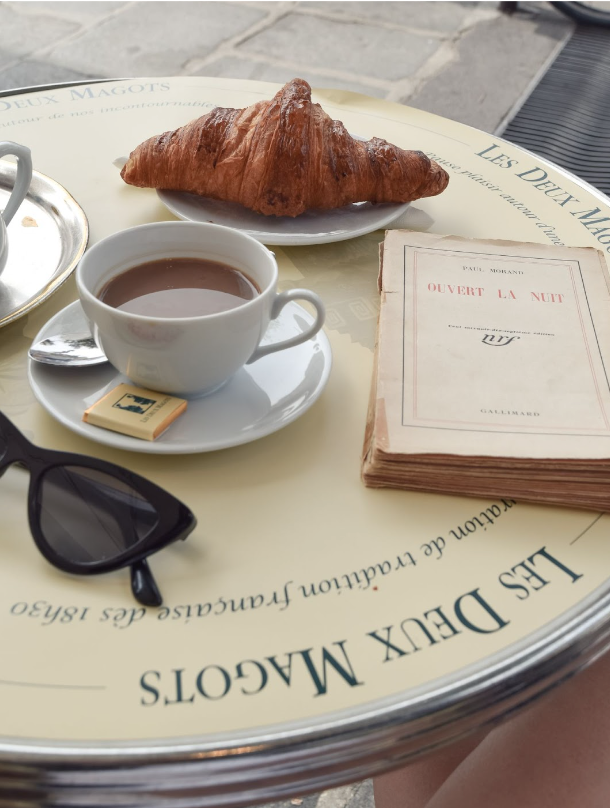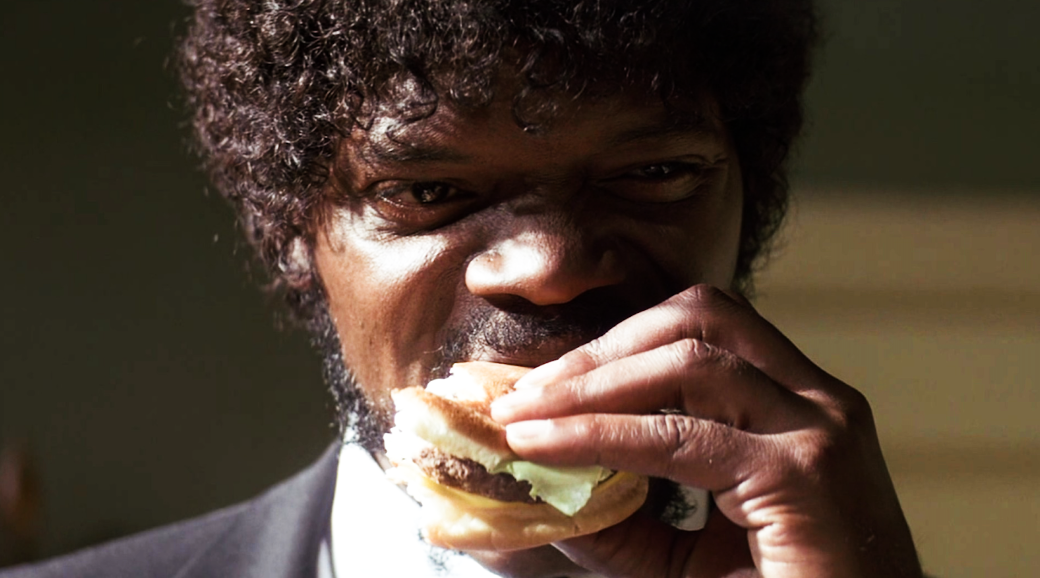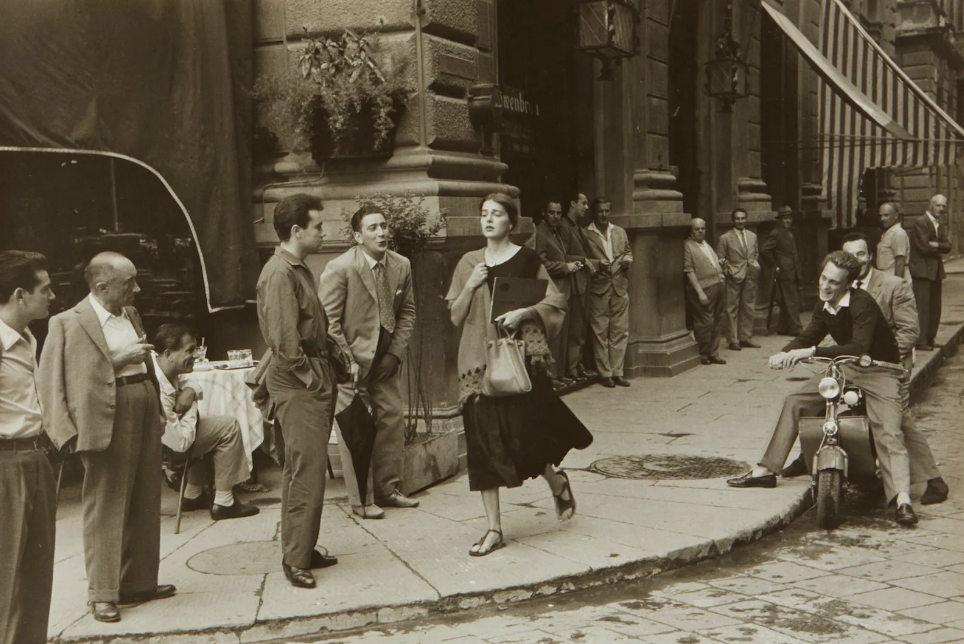Cowboys, Crocs and Croissants: A French Girl in Gainesville
Image Courtesy: Culture Travel
“Well, we don’t eat croissants every day,” my roommate Mathilde says, laughing as she tucks her baked cinnamon apples into a glass tupperware. She leans against the kitchen counter and racks her brain for other French stereotypes she’s been subject to.
Mathilde arrived in the U.S. last January, and our latest conversations still always manage to circle back to the distinction between life here and her life back in Toulouse, France.
While growing up in a diverse cultural hub has given me a taste of different backgrounds and traditions, I’ve never paid much mind to the intricacies of how those distant from me lived. Yes, I knew that behaviors and customs differed, but I never bothered to thoroughly compare experiences found in the U.S. to those found in other countries; especially given that I had no one with whom I could share and compare lifestyles with.
Image Courtesy: Reddit
Mathilde first set out for the U.S. with a glimmer of idealization. Her father, a pilot for Air France, had traveled to the U.S. countless times and always returned home with fresh stories and praise. To her, going to the U.S. to live and study abroad seemed like a dream.
But with her excitement came fear and anxiety. Traveling to a foreign place on her own, away from everything she’d ever known, what she dreaded most upon departure was being misunderstood.
Secondary to that, though, Mathilde was concerned about food quality and weight gain in the U.S. Outside her father’s firsthand experience, the States were all American football and fast food. It didn’t help that she was an agriculture and food sciences student, either.
She explains to me that because fast food originated in the U.S., it’s believed by other countries that our regimented diet consists solely of burgers and fries.
She continues to be surprised by the exaggerated food portions and the lengthy nutrition facts noted on the backs of grocery items. Even walking down the aisles of Walmart on her first day here was an experience.
“There were cereal bags the size of dog food. Everything is just so huge here!”
But what she was most shocked to see was that we didn’t align with the stereotype as much as she’d thought; we actually eat so much more than McDonald’s Quarter Pounder Meals and Taco Bell’s Chalupa Boxes (though, I must say, the occasional late-night frozen Baja Blast is enticing).
On the other hand, we did seem to fit the idea of the bubbly, optimistic American cliché caught in characters like Emily from “Emily in Paris.” This, she says, was a refreshing contrast from the common brooding and “pissed-off” attitudes of people in France (especially Parisians).
“It’s really nice to hear someone ask how you’re doing,” she says. “Like seriously, what does it cost to smile?”
Image Courtesy: Katie Dominguez on Adobe Behance
This frosty attitude, she explains, is also reflected in France’s school systems and professional settings as well. It’s more cut-throat there, whereas she feels a much more supportive environment here. She was pleasantly surprised to learn that students can speak in class and that deliberation is actually encouraged between students and professors; even more so that we are commended for our efforts and successes. Back home, academic achievement is expected of students and rarely celebrated.
Professors here foster a safe and positive learning environment where they allow their students to voice their thoughts and concerns and even provide helpful commentary. She expected Americans to be friendly, but found even more than she had hoped — especially in the academic department.
“University here is very different,” she notes. “Americans wear Crocs everywhere. In France you only wear them at home. If you want to go outside, you wear clothes!”
As Mathilde went to school while growing up, articles like leggings and joggers were strictly prohibited. Students would be sent back home to change for not adhering to the dress code. She explains that this kind of mentality sticks as one grows older.
“Here I wear jeans to class, and so many others wear pajamas. But, at the same time, I love that people here feel free to wear what they want with no judgment.”
Image Courtesy: Ria on Spotify
From frat parties and date functions to the Ladies’ Nights in Midtown, the party scene also differs across the pond. Where she goes to school in France, there’s no structure —– they don’t need bars, clubs or a pre to hit at the start of the night; they just go to someone’s house, eat, drink, dance and hang out until the early morning hours.
The houses decorated with big Greek letters along Fraternity and Sorority row were also a shock to her; almost like “Neighbors” and “Legally Blonde” had jumped out of her TV screen and come to life. Like others in France, Mathilde knew Greek life existed thanks to American books and movies, but never realized what a big presence it had within the U.S. college experience. In France there are mentor-mentee programs, but that’s as close as it gets to the Big-Little tradition we have here. In a way, she’s glad France doesn’t have Greek life.
“It’s so crazy how it seems to close people into these social boxes. It’s a good way to meet new people and get involved in student life but definitely seems to set women and men apart. It’s acceptable for men to party and socialize, but women have to maintain a certain image, and it just seems like such an outdated mentality.”
Growing up, my parents had adorned our dining room wall with a giant Ruth Orkin print. It showed a woman speeding through the streets, surrounded by jeering, obnoxious men. Titled “An American Girl in Italy,” it always made me uneasy, no matter how beautiful I found it to be. This piece, which I would eventually learn to be a testament to the male gaze, was also my first impression of culture shock and the confusion that often comes with exploring new territories. While new places present new beginnings and opportunities, they may also carry discomfort.
But Mathilde reminds me that, though all parts of the world come with intimidations, there is so much room to learn and explore.
Strike out,
Writer: Sofia Ramos
Editor: AJ Bafer
Graphic: Larissa Aguiar
Gainesville





